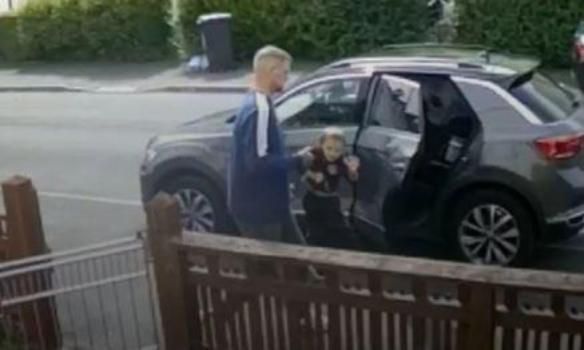Tragic Story from Wolverhampton: Two-Year-Old Boy Murdered by Grandparents After Months of Abuse
Wolverhampton, UK — A harrowing and deeply disturbing case has emerged from the West Midlands town of Wolverhampton, where a two-year-old boy tragically lost his life at the hands of those who should have protected him most — his own grandparents. The toddler’s death has sent shockwaves across the community and the nation, revealing horrifying details of sustained abuse, neglect, and cruelty that ultimately led to the child’s untimely and violent end.
According to court testimony and forensic investigations, the child, whose name is being withheld to protect the surviving family members, had endured weeks of torment and physical abuse while in the care of his maternal grandparents. The toddler had been placed with them under informal guardianship after concerns were raised about his biological parents’ ability to care for him. What was meant to be a place of safety instead became a nightmare.
One of the most chilling moments recounted during the trial involved a witness describing how the boy was once yanked up violently by his upper arm and flung over a shoulder “like a bag of rubbish.” This moment encapsulated the callousness with which the child was treated — not as a beloved grandson, but as a burden to be discarded and controlled with force. Neighbours reported hearing loud shouting, crying, and even what sounded like objects being thrown within the home over the course of several weeks leading up to the boy’s death.
Medical experts confirmed that the child suffered a range of catastrophic injuries that were “non-accidental” in nature. These included multiple bruises, internal bleeding, and a severe head injury, which ultimately proved fatal. A post-mortem examination revealed that the little boy had sustained a traumatic brain injury, believed to have been caused by blunt force trauma consistent with either being struck or violently shaken. Some of the injuries were in various stages of healing, indicating prolonged and repeated episodes of abuse.
One social worker described the case as “one of the most distressing” they had ever encountered. “It was clear that this little boy had been failed on multiple levels,” they said, holding back tears. “The system was supposed to step in, but the cruelty he endured went unnoticed until it was too late.”
During the trial, the grandparents displayed little remorse. Prosecutors revealed that they had tried to cover up the injuries by delaying calling emergency services, ultimately making a frantic and misleading 999 call claiming the child had simply “collapsed.” Paramedics arrived to find the boy unresponsive and covered in bruises. He was rushed to the hospital but was pronounced dead shortly after arrival.
The judge, during sentencing, called their actions “a heinous betrayal of trust and humanity.” The grandparents have since been convicted of murder and sentenced to life in prison, with a minimum term of 30 years behind bars.
Child advocacy groups and community leaders have reacted with horror and outrage, calling for an urgent review of child safeguarding practices in the region. “No child should ever fall through the cracks like this,” said one spokesperson for the National Society for the Prevention of Cruelty to Children (NSPCC). “This is a case that should shake all of us to our core. We need better protections, more thorough monitoring, and zero tolerance for any signs of abuse.”
In the days following the sentencing, mourners gathered outside the home where the abuse took place, leaving flowers, stuffed animals, candles, and hand-written notes. One card simply read: “You deserved love, not pain.”
Though justice has been served in the courtroom, the deep wounds left by this tragedy will take far longer to heal. The death of this innocent child is a stark reminder of the urgent need for vigilance, compassion, and accountability in every corner of our communities — especially when it comes to protecting those who cannot protect themselves.
If you suspect a child is being abused or neglected, don’t wait. Speak out. Call the NSPCC helpline at 0808 800 5000 or contact local authorities. Your voice might be the one that saves a life.

Leave a Reply